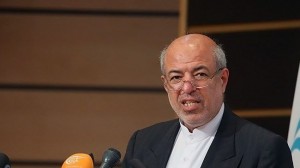 TEHRAN Mar 03 (Shana): Incorrect implementation of targeting subsidies law was the main reason behind rising energy consumption in the country, Minister of Energy Hamid Reza Chitchian said.
TEHRAN Mar 03 (Shana): Incorrect implementation of targeting subsidies law was the main reason behind rising energy consumption in the country, Minister of Energy Hamid Reza Chitchian said.
Addressing the 3rd international conference on new approaches towards energy conservation held in Tehran University on Sunday, Minister of Energy said economic development and population growth across the world have raised energy consumption which in worrying.
He continued that fossil fuels make up the bulk of energy consumption in the world which has negatively affected environment leading to rising pollution and release of greenhouse gases.
Stating that many countries in the world are seeking ways to bring energy consumption under control, Chitchian said changing economic structures and deploying updated technologies are among the mechanisms some countries have deployed to curb rising energy consumption.
Referring to negative impact of subsidies on energy consumption, Chitchian said there was no doubt that the countries paying energy subsidies won’t succeed in their energy conservation policies because people will not have enough incentive for conservation.
According to the official, paying energy subsidies in Iran has been one of the main reasons behind rising energy consumption implying the necessity of reforming energy policies.
In the Iranian calendar year of 1390, ended on March 21 2012, Iranian peoples’ per capita energy consumption was five times more than India and Pakistan and twice the China and Turkey’s fuel consumption.
Despite the status quo, some initiatives including implementation of targeting subsidies law, ratification of Energy Standards for electric household appliances and industrial equipments along with production of low-energy consumption light bulbs, passing a law on energy consumption and other initiatives have played a role in lowering energy use, the minister noted.
If current situation to be continued, our country may have to import its energy needs from other countries, Minister of Energy concluded.
By SHANA
The Iran Project is not responsible for the content of quoted articles.

 QR code
QR code